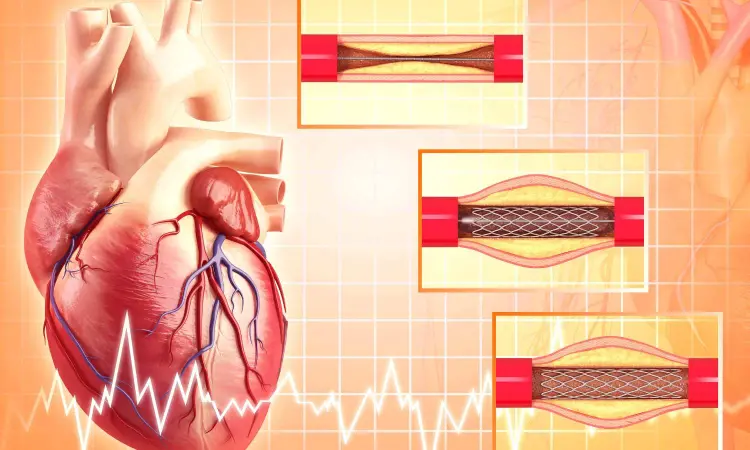- Home
- Medical news & Guidelines
- Anesthesiology
- Cardiology and CTVS
- Critical Care
- Dentistry
- Dermatology
- Diabetes and Endocrinology
- ENT
- Gastroenterology
- Medicine
- Nephrology
- Neurology
- Obstretics-Gynaecology
- Oncology
- Ophthalmology
- Orthopaedics
- Pediatrics-Neonatology
- Psychiatry
- Pulmonology
- Radiology
- Surgery
- Urology
- Laboratory Medicine
- Diet
- Nursing
- Paramedical
- Physiotherapy
- Health news
- Fact Check
- Bone Health Fact Check
- Brain Health Fact Check
- Cancer Related Fact Check
- Child Care Fact Check
- Dental and oral health fact check
- Diabetes and metabolic health fact check
- Diet and Nutrition Fact Check
- Eye and ENT Care Fact Check
- Fitness fact check
- Gut health fact check
- Heart health fact check
- Kidney health fact check
- Medical education fact check
- Men's health fact check
- Respiratory fact check
- Skin and hair care fact check
- Vaccine and Immunization fact check
- Women's health fact check
- AYUSH
- State News
- Andaman and Nicobar Islands
- Andhra Pradesh
- Arunachal Pradesh
- Assam
- Bihar
- Chandigarh
- Chattisgarh
- Dadra and Nagar Haveli
- Daman and Diu
- Delhi
- Goa
- Gujarat
- Haryana
- Himachal Pradesh
- Jammu & Kashmir
- Jharkhand
- Karnataka
- Kerala
- Ladakh
- Lakshadweep
- Madhya Pradesh
- Maharashtra
- Manipur
- Meghalaya
- Mizoram
- Nagaland
- Odisha
- Puducherry
- Punjab
- Rajasthan
- Sikkim
- Tamil Nadu
- Telangana
- Tripura
- Uttar Pradesh
- Uttrakhand
- West Bengal
- Medical Education
- Industry
ESRD patients undergoing PCI have considerably higher length of hospital stay and mortality

New research has revealed that End stage renal disease patients undergoing percutaneous coronary intervention have considerably higher In-hospital outcomes like mortality, cost, and length of stay than those not having the end-stage renal disease. The study results were published in the journal Cardiovascular Revascularization Medicine.
When the kidneys can no longer carry out their normal function, a person has end-stage renal disease and needs renal replacement treatment or a kidney transplant. The major cause of mortality for those with end-stage renal disease (ESRD) is cardiovascular disease due to increased coronary plaque and calcifications leading to a hyper-inflammatory state. Previous literature has shown that ESRD patients undergoing percutaneous coronary intervention (PCI) have an increase in in-hospital mortality and prolonged hospitalization, among other complications when compared with non-ESRD patients undergoing the same procedure. Hence researchers conducted a study to evaluate the in-hospital mortality after PCI in the setting of Acute Coronary Syndrome (ACS) using the National Inpatient Database (NIS) between the years 2016–2019 in ESRD patients.
Patients who had PCI between 2016 and 2019 were identified using the national inpatient sample (NIS). Patients with ESRD receiving renal replacement therapy (RRT) were then put into separate groups. In-hospital mortality was evaluated using logistic regression models as the primary outcome, while hospitalization costs and duration of stay were evaluated using linear regression models as the secondary outcomes.
Key findings:
- Nearly 21,366 unweighted observations were initially included, which had 50 % ESRD patients and 50 % randomly selected patients without ESRD who underwent PCI.
- A nationwide estimate of 106,830 patients was represented by these weighted observations.
- The mean age of the study population was 65 years, and 63 % of the patients were male.
- The ESRD group had a greater representation of minority groups compared to the control group.
- ESRD group showed a significantly higher in-hospital mortality rate when compared to the control group, with an odds ratio of 1.803.
- The ESRD group also had a significantly higher healthcare cost and longer length of stay, with a mean difference of $47,618 and 2.933 days.
Thus, the In-hospital mortality, cost, and length of hospital stay for patients undergoing PCI in the setting of ACS were found to be significantly greater in the ESRD group.
Further reading: In-hospital outcomes of PCI in patients who have ESRD vs non-ESRD patients, a retrospective study involving a National Inpatient Sample (NIS) database. https://doi.org/10.1016/j.carrev.2023.05.016
BDS, MDS
Dr.Niharika Harsha B (BDS,MDS) completed her BDS from Govt Dental College, Hyderabad and MDS from Dr.NTR University of health sciences(Now Kaloji Rao University). She has 4 years of private dental practice and worked for 2 years as Consultant Oral Radiologist at a Dental Imaging Centre in Hyderabad. She worked as Research Assistant and scientific writer in the development of Oral Anti cancer screening device with her seniors. She has a deep intriguing wish in writing highly engaging, captivating and informative medical content for a wider audience. She can be contacted at editorial@medicaldialogues.in.
Dr Kamal Kant Kohli-MBBS, DTCD- a chest specialist with more than 30 years of practice and a flair for writing clinical articles, Dr Kamal Kant Kohli joined Medical Dialogues as a Chief Editor of Medical News. Besides writing articles, as an editor, he proofreads and verifies all the medical content published on Medical Dialogues including those coming from journals, studies,medical conferences,guidelines etc. Email: drkohli@medicaldialogues.in. Contact no. 011-43720751



